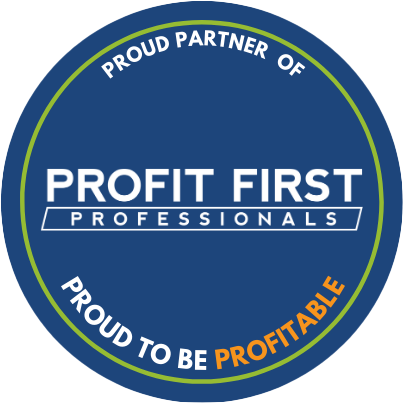Starting a Business: Essential Tips for Female Entrepreneurs
Embarking on the journey of starting your own business is both exciting and challenging. For female entrepreneurs, this path can come with unique opportunities and obstacles. While breaking into the business world has become more accessible, it’s essential to approach it with a clear understanding of potential pitfalls and strategic preparation. Here are some key insights to keep in mind as you lay the foundation for your new venture, including being realistic about grant opportunities, preparing financial reserves, and exercising caution with financial technology companies offering “free money.”
Have Twice as Much Equity in Reserve as You Think You’ll Need
When starting a business, it’s common to underestimate how much capital you’ll need. Many entrepreneurs create a budget based on best-case scenarios, only to find themselves scrambling when unexpected expenses arise. To avoid this pitfall, adopt a conservative approach and aim to have at least twice as much equity in reserve as you think you’ll need.
Why Businesses Often Underestimate Costs
Starting a business involves more expenses than many realize. Beyond the obvious costs like rent, equipment, and inventory, there are hidden expenses such as legal fees, taxes, permits, marketing, and employee benefits. Additionally, unexpected challenges like delayed payments from clients, fluctuating market conditions, or unforeseen emergencies can strain your finances.
The Importance of a Financial Cushion
Having ample reserves provides a safety net that allows your business to weather challenges without derailing operations. It also gives you the flexibility to seize opportunities, such as expanding your product line or investing in new technology, without relying on external funding.
How to Build Your Reserve
- Save Before Launch: Before quitting your job or investing in your business full-time, build up personal savings that can sustain both your business and personal expenses.
- Secure Diverse Funding: Explore a mix of equity sources, including personal funds, loans, and investments from friends, family, or angel investors.
- Plan for the Worst: When estimating costs, double or even triple your projections for expenses like marketing, hiring, and operational delays.
Beware of Financial Technology Companies Offering “Free Money”
The rise of financial technology (fintech) companies has revolutionized access to funding and payment processing. While many fintech solutions are legitimate and helpful, there’s also a growing number of predatory companies that prey on new entrepreneurs. This is especially true for companies advertising “free money” or no-risk funding opportunities.
Understand the Fine Print
Offers of “free money” often come with strings attached. For example, some fintech companies offer cash advances that must be repaid through a percentage of your future sales, often at exorbitant rates. Others provide loans with hidden fees or penalties that can quickly spiral out of control.
Beware of High-Interest Options
Many fintech companies cater to small businesses that may not qualify for traditional loans. While this accessibility can be helpful, it often comes at a steep price. Always review the interest rates, repayment terms, and potential penalties before accepting any funding. What seems like a quick fix can lead to long-term financial strain.
Watch Out for Overleveraging
Fintech platforms often make it easy to access credit lines or loans, but taking on too much debt can cripple your business. Overleveraging—borrowing more than you can reasonably repay—can lead to cash flow issues and jeopardize your financial stability.
Choose Reputable Fintech Partners
If you decide to work with a fintech company, do your homework. Research the company’s reputation, read customer reviews, and consult with a financial advisor if needed. Look for companies with transparent terms, fair rates, and a history of supporting small businesses.
Be Realistic About Grant Opportunities
Grants often seem like the holy grail of business funding: money you don’t have to repay. For women entrepreneurs, there are a growing number of grants specifically tailored to support female-owned businesses. However, it’s crucial to approach grant opportunities with realistic expectations.
The Competition Is Fierce
Business grants are highly competitive. Many organizations receive thousands of applications for just a handful of awards. Even if you meet the eligibility criteria, your application must stand out significantly. This means dedicating time and effort to crafting a compelling proposal that clearly outlines your business vision, financial needs, and how the grant will help you achieve your goals.
Grants Are Often Specific
Grants typically come with restrictions on how the funds can be used. For example, some grants are designed to fund specific industries, projects, or demographics. It’s important to carefully review the terms and ensure your business and proposed use of funds align with the grant’s purpose. Applying for grants that aren’t a perfect fit can waste valuable time and resources.
Don’t Rely Solely on Grants
Grants should be viewed as a supplemental funding source, not your primary one. Pinning your hopes on winning grant money can lead to financial shortfalls and stalled progress. Instead, focus on building a robust financial plan that incorporates multiple funding streams, such as personal savings, loans, and investments, while treating grants as a bonus rather than a guarantee.
Additional Tips for Starting a Business
While the points above are critical, there are other important considerations to keep in mind as you embark on your entrepreneurial journey:
Have a Clear Business Plan
A detailed business plan is essential for guiding your decisions and securing funding. It should outline your business model, target market, revenue projections, and operational strategy.
Network with Other Entrepreneurs
Building a support network of fellow entrepreneurs, especially other women, can provide valuable insights, resources, and encouragement. Attend industry events, join local business groups, and leverage online communities to expand your network.
Understand Your Target Market
Knowing your customers’ needs and preferences is crucial for developing products or services that resonate. Conduct thorough market research and use the insights to refine your offerings and marketing strategies.
Invest in Professional Advice
Don’t hesitate to hire experts for critical aspects of your business, such as accounting, legal compliance, or marketing. While these services may seem costly upfront, they can save you time and money in the long run by preventing mistakes.
Embrace Continuous Learning
The business landscape is constantly evolving, and staying informed is key to staying competitive. Take advantage of workshops, online courses, and mentorship programs to sharpen your skills and adapt to changes in your industry.
Starting a business is a bold and rewarding endeavor, but it requires careful planning, financial discipline, and a healthy dose of skepticism. For female entrepreneurs, being realistic about grant opportunities, preparing ample financial reserves, and navigating fintech offers with caution can significantly improve your chances of success. By taking the time to build a solid foundation and staying vigilant, you can turn your entrepreneurial vision into a thriving reality.
Remember, the journey may be challenging, but the rewards of building something meaningful and impactful are well worth the effort.

About the author:
Lauren Schellinger
VP/Regional Relationship Manager
Reach out:

